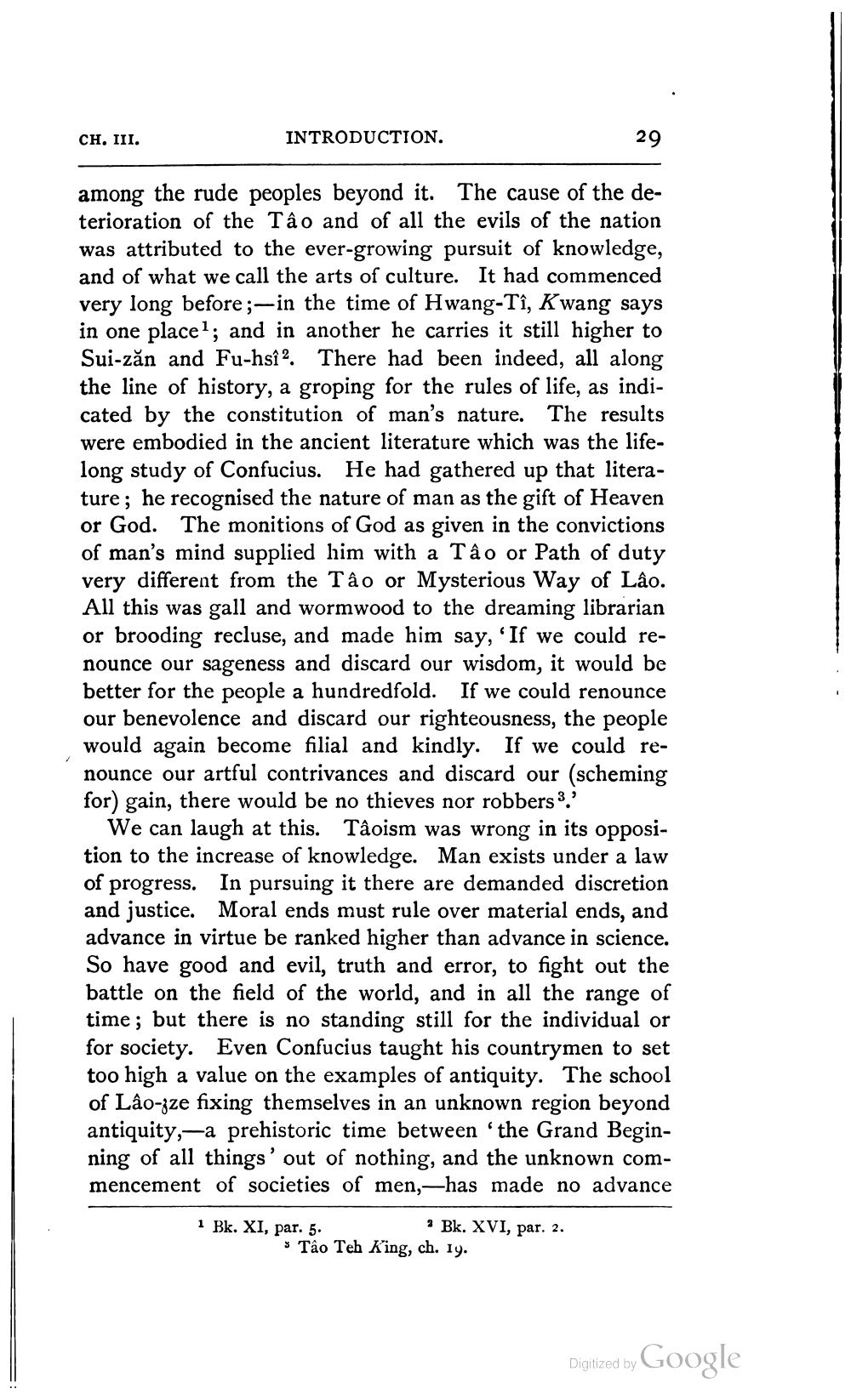________________
CH. III.
INTRODUCTION.
among the rude peoples beyond it. The cause of the deterioration of the Tâo and of all the evils of the nation was attributed to the ever-growing pursuit of knowledge, and of what we call the arts of culture. It had commenced very long before;-in the time of Hwang-Tî, Kwang says in one place?; and in another he carries it still higher to Sui-zăn and Fu-hsî There had been indeed, all along the line of history, a groping for the rules of life, as indicated by the constitution of man's nature. The results were embodied in the ancient literature which was the lifelong study of Confucius. He had gathered up that literature; he recognised the nature of man as the gift of Heaven or God. The monitions of God as given in the convictions of man's mind supplied him with a Tâo or Path of duty very different from the Tâo or Mysterious Way of Lâo. All this was gall and wormwood to the dreaming librarian or brooding recluse, and made him say, 'If we could renounce our sageness and discard our wisdom, it would be better for the people a hundredfold. If we could renounce our benevolence and discard our righteousness, the people would again become filial and kindly. If we could renounce our artful contrivances and discard our (scheming for) gain, there would be no thieves nor robbers 3.
We can laugh at this. Tâoism was wrong in its opposition to the increase of knowledge. Man exists under a law of progress. In pursuing it there are demanded discretion and justice. Moral ends must rule over material ends, and advance in virtue be ranked higher than advance in science. So have good and evil, truth and error, to fight out the battle on the field of the world, and in all the range of time; but there is no standing still for the individual or for society. Even Confucius taught his countrymen to set too high a value on the examples of antiquity. The school of Lâo-zze fixing themselves in an unknown region beyond antiquity,-a prehistoric time between the Grand Beginning of all things' out of nothing, and the unknown commencement of societies of men,-has made no advance
1 Bk. XI, par. 5.
Bk. XVI, par. 2. * Tâo Teh King, ch. 19.
Digitized by Google




